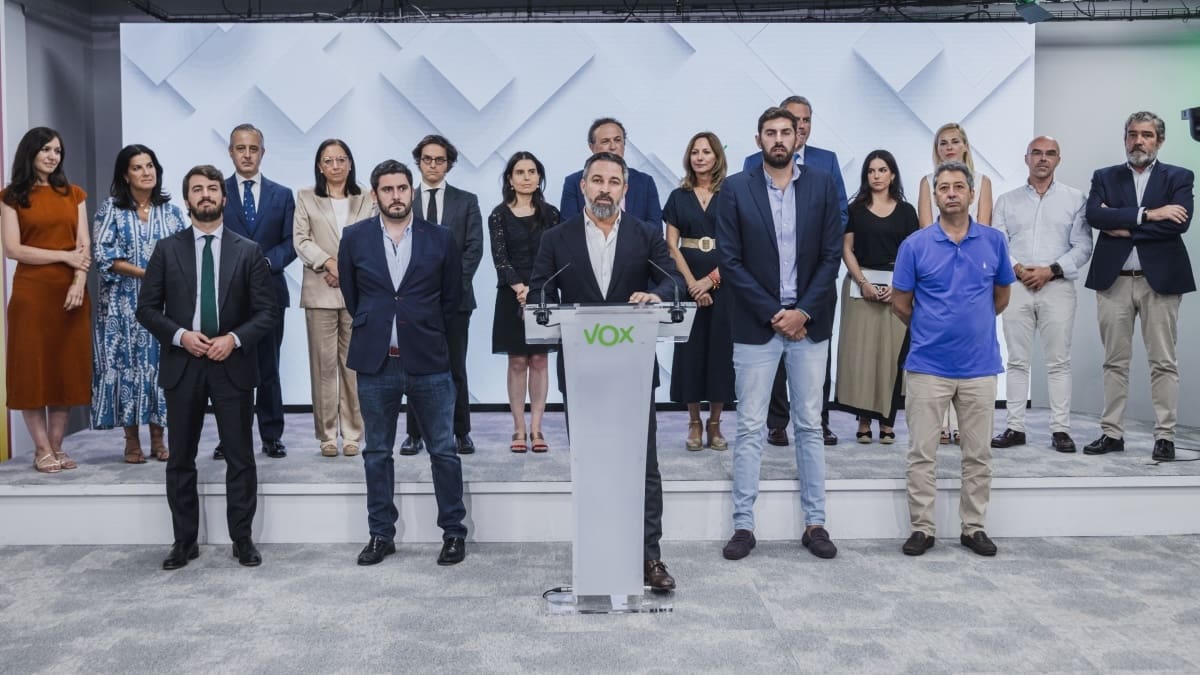
Spanish conservative VOX has followed through on its threat and broken with the Partido Popular in the five regional governments where the two parties governed together, keeping Spain’s political Left at bay.
The straw that broke the camel’s back was the question of the redistribution of minor migrants from the Canary Islands to youth centers throughout mainland Spain. The archipelago has seen an exponential growth in the number of unaccompanied minor migrants arriving from Africa. Nearly 6,000 have come this year alone, straining reception centers to the breaking point and creating security problems for the island’s residents. The central government has been begging regional governments to accept more transfers of the youth from the island to the mainland. On Wednesday, every region except Catalonia agreed to accept a handful of migrant youth–in total, 400.
Each party argued their position was a matter of principle. For VOX, the PP had crossed a red line in the coalition agreements, abandoning the fight against illegal immigration. The PP argued that it had to act in solidarity with vulnerable youth and that it had not violated the coalition agreements nor stopped fighting illegal immigration. Both the PP and VOX have called on PM Pedro Sánchez to take more action to address the immigration crisis.
VOX president Santiago Ababscal made the formal announcement on Thursday night following a meeting of the party’s executive committee. The difficult discussion and divisions in the party over the move were first in evidence that night as the politicians emerged from behind closed doors approximately an hour late for the press conference scheduled for 8 p.m.
By Friday afternoon, most of VOX’s regional ministers and all of the regional vice presidents had either formally quit their respective governments or been dismissed by the PP regional presidents. There were a few exceptions. In Extremadura, the sole regional minister from VOX, Ignacio Higuero, defied Abascal and announced he would remain at his post in the southern Spanish regional government, an area where the socialist party has historically had a comfortable majority. The regional president María Guardiola of the PP stood with him at the press conference, showing her support for the VOX dissident.
“I understand the direction VOX has taken, but I do not share it and I cannot defend it,” Higuero said.
He said he would formally leave the party in the next week but did not make a commitment as to which party he would join.
In Castile-Leon, the vice president Juan García-Gallardo quickly stepped down from his post, moving to spokesperson for VOX in the region. But VOX’ three regional ministers announced their rebellion against Abascal. Regional president from the PP Alfonso Fernández Mañueco quickly fired the agriculture minister Gerardo Dueñas and the employment and industry minister Mariano Veganzones, retaining nevertheless, cultural minister Gonzalo Santonja.
VOX’ complete break with the PP in these regions came as a surprise since the regional coalitions, many formed in the last year following regional elections in May 2023, had seemed stable—despite some inevitable friction—and had achieved important measures such as passing pro-family policies and laws counteracting PM Sánchez’ Law of Democratic Memory.
The PP has presented a calm front to the political crisis, simply replacing VOX ministers and reaffirming its willingness to govern with a minority in these regions if needed. With budgets already passed, they have one of the fundamental points of governance already in place for the rest of the year. It remains to be seen how VOX will interact with PP governments moving forward in the role of opposition. So far, they have not threatened any votes of no confidence. The memory of the now-defunct Ciudadanos party still haunts Spanish politics. That party’s demise stemmed largely from rupturing regional coalition governments with the PP and sending the regions to snap elections. In subsequent elections, its voters severely punished Ciudadanos for what they saw as gratuitously destabilizing functioning governments.
Time will tell who will ultimately benefit from VOX’s move. The Left has used it as fodder to criticize both the party and the political Right at the same time that Sánchez has called it a win for Spaniards to be alleviated from VOX’s presence in the regional government. Even conservative analysts have been skeptical that VOX’s bold move will benefit either Spain or the party, warning that the immediate beneficiary appears to be Sánchez.
VOX has faced an uphill battle in the last few months. In the European elections in June, it lost some 800,000 votes to the new party Se Acabo La Fiesta (The Party is Over), which entered into the EU parliament with 3 seats. Then the question of the Spanish judiciary increased the tension between the PP and VOX. In July, the PP finally made an agreement with the socialist party and Sánchez for the renewal of the justice system. VOX had been staunchly urging the PP not to come to any agreement with the socialists as any accord would simply be a chance for the socialist prime minister Pedro Sánchez to continue to politicize the country’s judicial branch. Nevertheless, even conservative analysts have praised the deal the PP struck with the Sánchez government as unblocking an increasingly hamstrung court system while stopping the worst abuses of power on the part of Sánchez.
